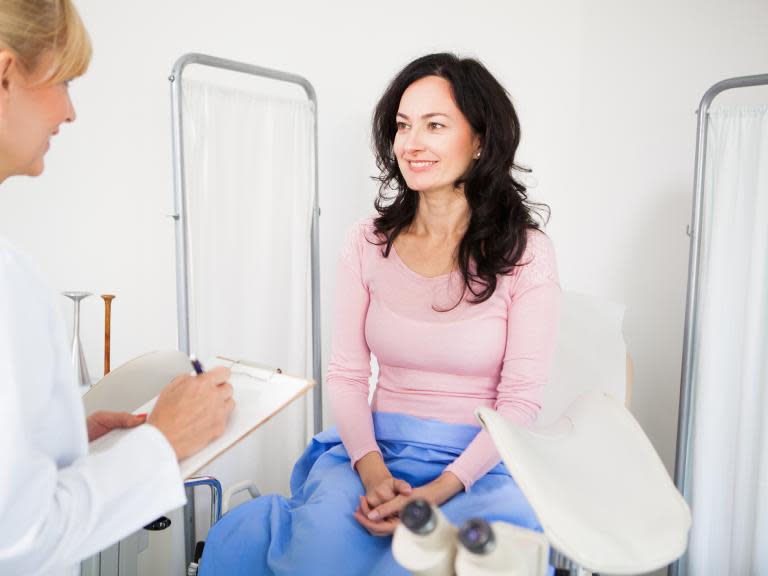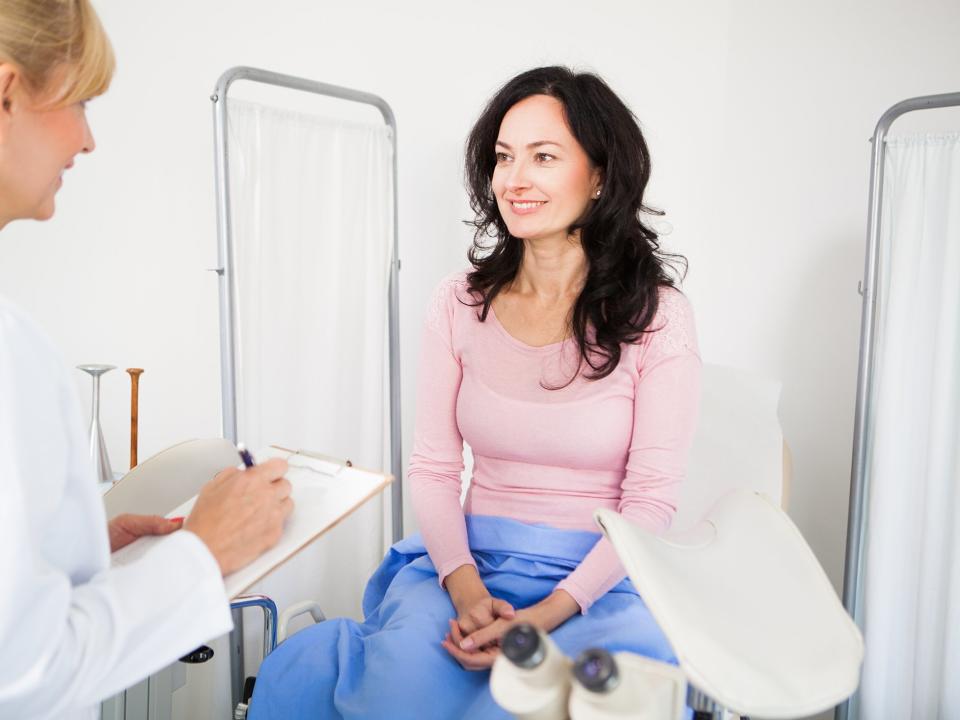Shockingly low smear test attendance can only be improved by providing free childcare
There are about 101 things a woman would probably rather do than attend a smear test. With all the impersonal chat, the clanking about of utensils in your exposed, tender parts, it’s a bit like a trip to the dentist, only inside your vagina.
We all know, of course, how important smear tests are. Or do we? Cervical cancer affects 3,000 women in the UK per year, and kills 700 of them. Regular smear tests can reduce the risk of cervical cancer by up to 80 per cent – and yet more than three million women across the UK aren’t showing up for screening.
Now, to make the proposition more palatable, online babysitting hub Childcare.co.uk is rolling out free childcare for women attending their smear tests. While I welcome their attempts to provide a practical solution to a lateral problem – it is a tiny (and probably unsustainable) – patch for a much larger problem.
Free or subsidised childcare is a great start. With NHS cuts closing so many local sexual health clinics, forcing women to travel further for appointments, childcare costs are a real concern. However, it should be offered as standard, not as a novelty project by a private company – and it needs to be joined up with other ways of attacking, again laterally, the reasons women stay away from smear tests.
For example, to improve awareness we could start education in schools, featuring the benefits, risks and relatable case studies. De facto online booking would make the world of difference for nine-to-fivers as no one likes to whisper their booking into their phone in an open-plan office. And I’m sure screening rates would improve with better publicity about the fact that – if you’re a nervous patient, have been sexually abused, or have chronic pain – you can ask for a longer appointment, specify you want a female doctor, and take a friend along for reassurance.
Sadly, I’m not sure how likely this is, as women’s wellbeing, health – and even, in some cases, lives – seem depressingly low on the agenda.
Research shows that women wait longer than men in hospital emergency departments, and are less likely to be given opiod painkillers than men when they say they are in pain. In 2018, a French woman called the emergency services with abdominal pain so severe she thought she “might die”. “You’ll die, just like everyone else”, the operator told her. The woman had to wait five hours to be taken to hospital – at which point she died.
Every woman I know has a story, generally much less extreme, about not being taken seriously by doctors. We prepare for it and worry about it. We print out pages and pages of NICE guidelines and take them along with us, because doctors are more likely to take the printed word seriously than give credence to us and our silly woman-ideas.
I once went to my GP with frequent stabbing pains in my knee. Noting that I have depression, my GP insisted my knee-pain was “a manifestation of your emotional problems”. A second opinion and an X-ray showed it was a kneecap injury from running.
Here’s a handy snapshot of how we prioritise women’s health – tampons, without which half the population would be free-bleeding in the streets on a monthly basis, are taxed as a “luxury item”. Personal helicopters, whereas, are not.
And if women become mothers, they’re failed again. Black mothers are five times more likely to die in childbirth than white mothers, signposting for mental health support before and after birth is patchy at best, and with thousands of “life-saving” Sure Start centres closing across the UK (and being underreported by the government) vast swathes of new mothers are being left isolated and without support.
When I went to my postnatal checkup, my doctor didn’t even look up from his notes. He just muttered, “everything all right down there?” then said I could leave. This was six weeks after I gave birth to my son via emergency caesarean, during which I hemorrhaged, and both the baby and I developed sepsis.
Until we start prioritising women and women’s health, both will continue to suffer. Grassroots enterprises are springing up, like journalist Sali Hughes’ Beauty Banks – which provide personal care, beauty and sanitary items for women who can’t access their own – and maybe this is the first step in turning the tide.
Maybe – just maybe – the second step could be the implementation of tiny changes to the provision of smear tests. Rather than being huffy and alarmist about their importance, perhaps we could try addressing the concerns of the women we’re talking, and treat them like people, and not scolded children.



